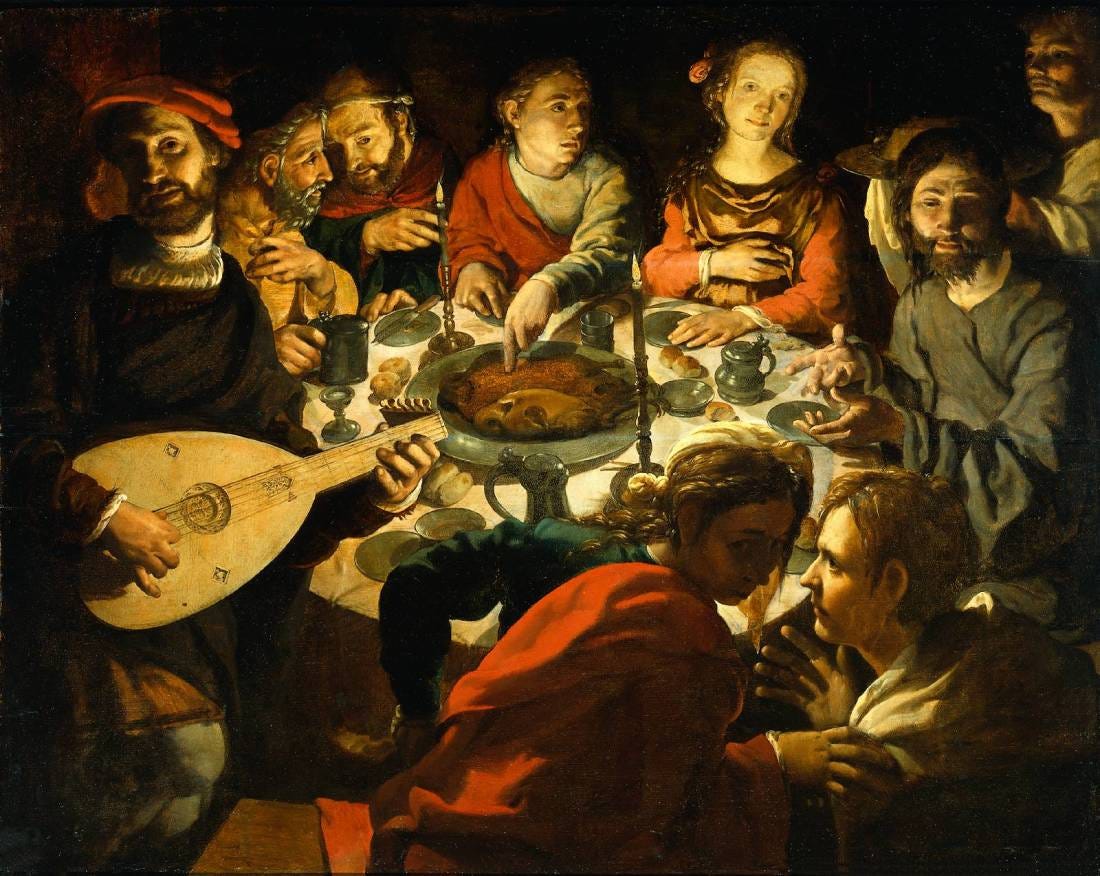A popular modern phrase is ‘to have a seat at the table’. It is used in conversations on diversity. It describes a situation in which someone is included in a discussion and can influence decisions that are made, they will be able to make sure their voices are heard. It has gained popularity from its use in Langston Hughes’ iconic poem, I, Too, am America.
‘I am the darker brother.
They send me to eat in the kitchen
When company comes,
But I laugh,
And eat well,
And grow strong.
Tomorrow,
I’ll be at the table
When company comes.’
2,000 years before, Jesus introduced the concept of having a seat at the table. In Matthew 9: 10-17, The Pharisees accused Jesus of sitting at table and eating with tax collectors. In John 4: 1-42, His own disciples wondered why he would be sitting and drinking water with the Samaritan woman at the well. In Luke 7: 36-50, the Pharisees were astonished that Jesus, reclining at table, would allow Mary Magdalene to touch him ‘If this man were a prophet, he would have known who and what sort of woman this is who is touching him, for she is a sinner.’
In this week’s Gospel John 6: 1-15, Jesus shows himself to be concerned with all persons. He wanted to make sure everyone had a seat at the table of the Lord. He chose the little boy with his five barley loaves and two fish to feed everyone to their fill.
‘Have the people sit down’ is a call for a radical hospitality. To me it captures the essence of synodality. Among those people who gathered and were fed with the barley loaves and fish were ‘the poor and marginalized, sick and crippled, Jews and Gentiles, tax collectors and sinners, adulterers, Samaritans and I dare say, some Romans’.
They were all invited to sit down and partake of the meal, regardless of their status or background. This act of inclusion and care reflects the boundless love and generosity of Christ, who sees and values every person. It is a powerful reminder that in the eyes of God, no one is overlooked or deemed unworthy.
In this gathering, we see a glimpse of the Kingdom of Heaven, where all are welcomed and nourished, both physically and spiritually. This message of unity and compassion challenges us to extend the same hospitality in our own lives, creating spaces where everyone feels valued and included.
Probably today you are feeling excluded, isolated, or overlooked in some aspect of your life. Whether it's at work, in your community, or even within your family, the pain of feeling like you don't belong can be overwhelming. Yet, the story of Jesus feeding the multitude reminds us that there is a place for everyone at the table of the Lord.
This divine invitation is is for all. It calls us to recognize our inherent worth and to extend that recognition to others. In moments of exclusion, we can find solace and strength in knowing that God's love is inclusive and unconditional. We are all invited to sit down, share in the abundance of His grace, and be part of a community that values and embraces each individual.
Probably today you know of someone who is feeling excluded. Why not go to that person and invite them to have a seat at the table? A simple gesture of inclusion can make a profound difference in someone's life. Just as Jesus reached out to the marginalized and welcomed them into His fold, we too can extend our hands to those around us who may be feeling left out or forgotten.
It could be a colleague who is often left out of conversations, a neighbor who lives alone, or a family member who feels distant. By offering them a place in our lives, we not only reflect the love and hospitality that Jesus exemplified but also build a stronger, more compassionate community.
NOTICE BOARD
Friends, I invite you to join our Bible Reading and Study program. At present we are exploring St Paul letters, as read at the second reading of Sundays. Click and follow the link below.





Thank you, Deacon for this great reminder.
Whenever we may feel excluded, we can always realize that we are included in the kingdom of God, we are included in His Creation. There’s no way we can be excluded from God because He is omnipresent.